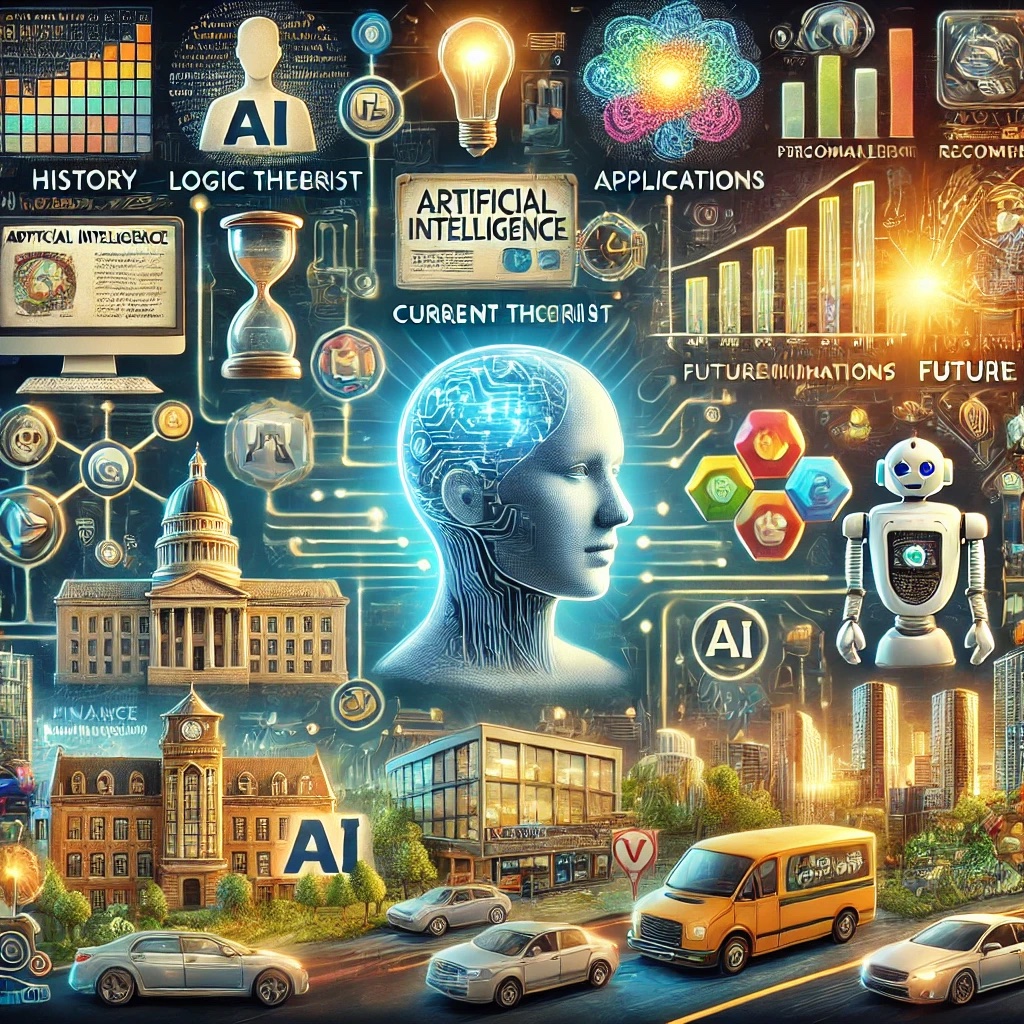Artificial Intelligence:
History, Current Applications, and Future Prospects
What is Artificial Intelligence?
Artificial Intelligence (AI) refers to the simulation of human intelligence by machines, particularly computer systems. It encompasses diverse disciplines such as machine learning, natural language processing, robotics, and computer vision. AI systems are designed to perform tasks that typically require human cognitive abilities, including problem-solving, decision-making, speech recognition, and natural language understanding. AI is broadly categorised into two types:- Narrow AI: Designed for specific tasks, such as language translation or image recognition.
- General AI: Aims to replicate human cognitive abilities across a wide range of activities.
A Brief History of AI
The concept of AI has ancient roots, reflected in myths and stories about mechanical beings mimicking human behaviour. However, the formal study of AI began in the mid-20th century.
In 1950, British mathematician Alan Turing proposed the Turing Test to evaluate a machine's ability to exhibit intelligent behaviour indistinguishable from that of a human. The term "artificial intelligence" was officially introduced in 1956 at the Dartmouth Conference, where researchers convened to explore the possibility of machines that could think.
Early research focused on problem-solving and symbolic reasoning, leading to milestones such as the Logic Theorist (1955), regarded as the first AI program. By the 1960s and 1970s, AI expanded into fields like robotics and natural language understanding. However, limited computing power and overly ambitious goals led to the "AI winter," a period of diminished funding and interest.
Modern Developments in AI
AI's resurgence in the late 1990s and 2000s was driven by advancements in computational power, the proliferation of data, and innovations in algorithms. Machine learning, particularly deep learning, became a central focus, utilising neural networks to analyse massive datasets.
Today, AI is ubiquitous, powering applications such as:
- Voice Assistants: Siri, Alexa, and Google Assistant.
- Autonomous Vehicles: Self-driving technologies.
- Personalised Recommendations: Platforms like Netflix and Amazon.
- Natural Language Processing (NLP): Models such as GPT-4, which generate human-like text and facilitate meaningful conversations.
Companies like OpenAI, Google DeepMind, and IBM have been at the forefront of AI research. For instance, OpenAI's GPT models illustrate the power of AI in language generation, while DeepMind's AlphaGo made history by defeating world champions in the complex board game Go.
Despite its benefits, AI's rapid development raises ethical concerns, including:
- Bias in Algorithms: Risk of reinforcing societal inequalities.
- Data Privacy: Protecting sensitive information.
- Job Displacement: Automation of tasks traditionally performed by humans.
Governments and organisations are working on frameworks to ensure the ethical and responsible development of AI.
The Future of AI
AI holds the potential to revolutionise industries, augment human capabilities, and address global challenges. In healthcare, AI can assist in disease diagnosis and personalised treatment plans. In finance, it enhances fraud detection and risk management. In education, AI-powered tools provide personalised learning experiences.
As AI becomes more integrated into daily life, its dual promise and challenges will continue to shape discussions around technology, society, and governance. Responsible innovation and regulation will be critical to harnessing AI's transformative potential while mitigating its risks.
